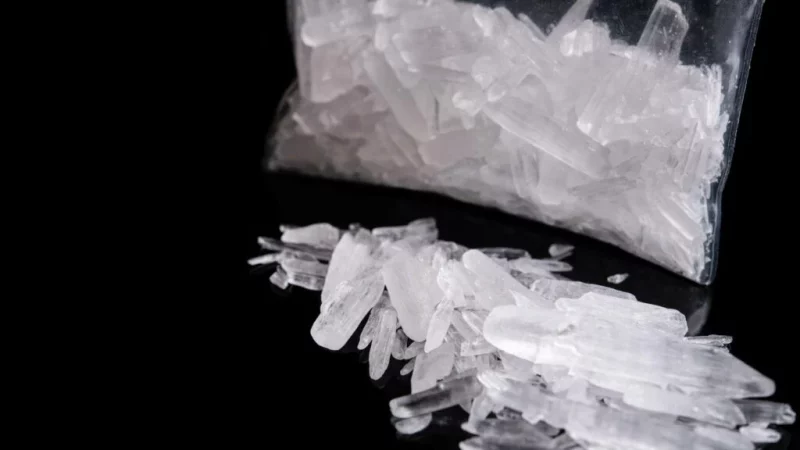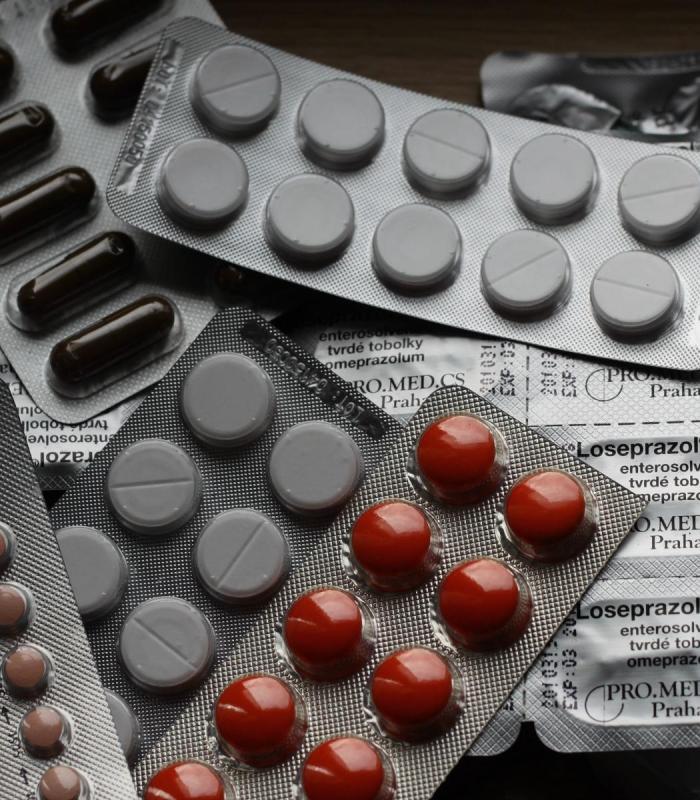In this comprehensive parenting guide on how to address illegal drugs with your children you will find…
Download FREE drugs guide for parents
Preparation and knowledge provide the foundations to help you respond effectively in an emergency. Watch the video and equip yourself with expert advice from emergency services staff and Professor Gordian Fulde.
Expert advice from Nick Adam, an intensive care nurse, and Professor Gordian Fulde, former Director of Emergency at St Vincent’s Hospital.
How would you talk to your child about why you can have alcohol, or tea and coffee, or even why you choose to smoke?
Imagine they’ve just learned that all these things fall into the category of drugs, stimulants and/or depressants, and they are relaying to you how these choices affect your body – sometimes in unhealthy ways.
In the video, Dr Justin Coulson (psychologist/parenting researcher and author) shares some advice on how to approach the situation.
Get curious, not furious
Instead of getting defensive, be inquisitive. Ask them where they learnt that and what else they know. Your child will feel part of the conversation and appreciate having their say.
Moderation and relaxation
Depending on your child and the scenario, you may choose to share that you do these things to unwind or relax. When discussing this, express the importance of moderation. You may also talk about healthy and unhealthy coping mechanisms and the role they could play in choosing to smoke or drink.
Through our program, we are speaking with your kids about the use of drugs and alcohol and how they can affect our bodies. We do this to empower them to make better choices in their life. Find out more about this work in our Decisions module.
“Parents should avoid outright confrontation and aggression… that initial reaction from the parents is so important and then the ongoing relationship has to be strong.” – PROFESSOR GORDIAN FULDE
On average, a smoker can gain five kilos when quitting smoking, but the benefits of quitting smoking – longer life expectancy, lung capacity and brighter teeth to name a few – far outweigh any potential weight gain.
So, if you’re about to quit, stock up on healthy foods and plan to be active!
This is a huge misconception. While some homemade or organic foods are better for you than store-bought options, there is no such thing as a ‘healthy’ cigarette.
For some, a cigarette at the end of a stressful day may feel like a release. In reality, heart rate and blood pressure rise each time you smoke.
Try distraction as one means of quitting.
Take a walk, have a shower, get active, sing, dance…any alternative activity to avoid it.
Do these things often enough to break the habit.
There’s no healthy level of smoking. Every cigarette does your body damage – and puts you at risk of developing a dangerous habit.
You’re right, you are already at risk, but the benefits of quitting are instant!
Your heart rate will reduce within 20 minutes, the carbon monoxide in your blood drops in less than a day, and by this time next year, your risk of heart disease will be half what it is today.

We understand that this can be a challenging topic: media and medical reports about the impact of the drug ice can be frightening. Our ‘what you need to know’ section will arm you with the facts if your child has questions about ice.
What is Ice?
Ice is the street name for crystal methamphetamine hydrochloride – a synthetic drug made from chemicals. Also known as crystal, ice is a powerful and potent form of amphetamine, which stimulates the central nervous system and speeds up the messages between your brain and your body.
What does it look like?
Ice usually comes in the form of small crystals. These can be either brown or white.
How it is used?
Ice is usually smoked, but can be injected, swallowed or snorted.
There is no safe level of use. Ice affects everyone differently but some of the immediate effects can include:
The effects from the drug can last up to six hours, and after that the user may experience another set of reactions from ‘coming down’ including:
The long-term effects of any illegal drug can be damaging. Prolonged use of crystal meth can lead to depression, anxiety, violence, increased risk of a stroke, and heart and kidney problems. Changes in personality traits, increased tendency for anger and the loss of emotional capacity are also common, not to mention the damaging effect the drug has on families, friends and the wider community.
Most children will not be aware of or exposed to issues concerning illegal drugs, and thankfully, for most young children, it may not be necessary to have discussions around specific illegal drugs and their dangers.
When appropriate, having conversations about legal and illegal drugs with your child can help you gain an insight into their opinions and knowledge about drug-related issues. Perhaps these discussions may occur after watching the news, or maybe there has been a new media story, a reaction in the community, or a lesson taught in school. When these ‘teachable moments’ happen, it may open an opportunity to reassure your child, help them to understand but also allow them to raise questions that may be concerning them.
What’s appropriate to tell an 18 year old versus an eight year old is quite different, so in all instances it is important that these conversations are age appropriate and that you feel comfortable discussing the issues with them. As every child is different, and every situation is different, there is no fixed formula for having conversations about illegal drugs. Use terms that your child will understand, keep the tone of the conversation calm and ask questions in a non-judgemental way. The Other Talk offers some excellent advice on how you can have these conversations, when appropriate, with your child.
By providing a secure and trusted space, your child should feel safe to discuss their concerns, worries and questions with you. Listen to their opinions and share your own. Remind them of the harmful effects of drugs to a person’s health, but also the emotional impacts and the effects drugs have on families and friends.
Rumours and stories spread like wildfire in schools and in peer groups so be prepared with facts and understanding before you have these conversations. You can visit the Australian Drug Foundation for fact sheets and pamphlets.
 Minding our medicines
Minding our medicinesNearly all of us take medicines – either those prescribed by doctors or those we buy over the counter. Sometimes our bodies need medicine to heal, reject a virus or infection, or treat a medical condition. All too often, we take the medicines we consume for granted.
For many of us, when our bodies feel pain like the onset of a headache, we immediately reach for a pain reliever. These over-the-counter relievers are easy to access, convenient, and can provide instant relief, but it’s important to stop and remember that as with all medicine, there is potential risk.
In 2013, 4.7% of Australians aged 14 or older had misused a pharmaceutical in the previous 12 months. Painkillers and analgesics made up 3.3% of this with 78% of those being over-the-counter painkillers.
As parents, we need to make sure we are fully informed when it comes to providing medicine to our children. When your child is feeling unwell, speak to your doctor or local pharmacist for advice.
When your child says they feel sick, ask them where they feel sick and what’s hurting to try to understand why they might be feeling ill, before resorting to an analgesic. They may be dehydrated and need to drink fluids or have strained their eyes and need some screen downtime and fresh air!
If you do need to give your child some medicine, after advice from a pharmacist or doctor, help them to understand what a medicine is, why you are giving it to them and that it needs to be taken properly.
Keep all medicines well out of the reach of little hands. Let your child know that the medicine cupboard is for adults only.
It’s equally important for us to recognise our own practices, and what we role model, when it comes to medicine use. Take a few minutes to identify for yourself the reason you may have a headache, and look to alternatives such as having a rest, drinking water or getting some fresh air rather than automatically reaching for medicinal help.